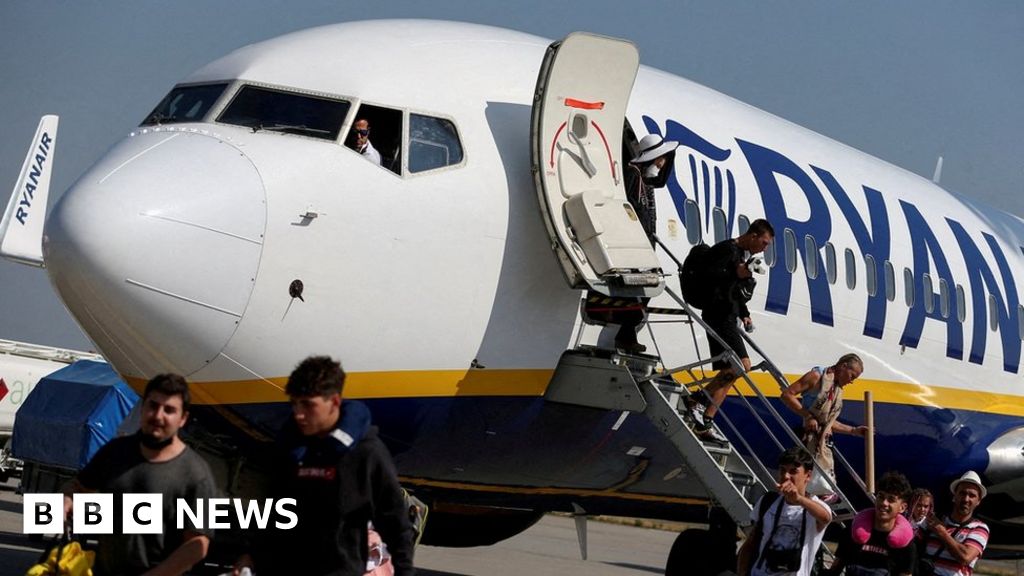Unlock the Editor’s Digest for free
Roula Khalaf, Editor of the FT, selects her favourite stories in this weekly newsletter.
Spotify will axe almost a fifth of its workforce after warning that economic growth had slowed dramatically and it needed to cut costs as the music streaming giant seeks to turn subscriber growth into consistent profitability.
In a memo to staff on Monday, chief executive Daniel Ek said Spotify would cut about 17 per cent of its global workforce, about 1,500 people. Spotify employs more than 9,000 people worldwide.
“I recognise this will impact a number of individuals who have made valuable contributions,” Ek said. “To be blunt, many smart, talented and hard-working people will be departing us.”
Spotify shares jumped 8 per cent in morning trade in New York.
Despite its popularity, Spotify has throughout its history struggled to make a consistent profit — a source of increasing frustration from investors. Activist investor ValueAct in February acquired a stake in Spotify and raised concerns that its expenses had “exploded”.
Combined with earlier rounds of cuts, Spotify has in 2023 fired more than 2,000 employees, or a quarter of its workforce, while its user growth has soared.
“The knock on Spotify from investors for so long was: amazing service, amazing platform, not a great business”, said Rich Greenfield, analyst at LightShed. “This is demonstrating to investors that this can be a great business. People lost faith in that over the last few years”.
Monday’s announcement comes just over a month after Spotify’s cost-cutting drive showed signs of paying off. In October, the New York-listed company pointed to cost cuts and price rises for helping it report its first quarterly profit for more than a year.
Ek acknowledged that the size of the job cuts would be a surprise given the recent improvement in earnings. He said the group had debated making smaller cuts next year and in 2025, but opted for a bigger restructuring now. Staff at risk of losing their jobs will be told on Monday.
Spotify has set a goal of reaching long-term gross profit margins of between 30 and 35 per cent. Gross margins stood at 26 per cent in the most recent quarter.
“Considering the gap between our financial goal state and our current operational costs, I decided that a substantial action to rightsize our costs was the best option to accomplish our objectives,” Ek said on Monday.
Spotify’s financial results had benefited from an earlier round of cost cutting after unwinding an expensive bet on podcasts, which included axing about 600 jobs at the start of 2023 and a further 200 in the summer.
Bank of America analysts in October said Spotify had reached an “inflection point” for profits, stating that “management’s recent commentary and actions on expenses should drive continued improvement”.
On Monday, Ek said Spotify was facing new realities, including a higher cost of capital, and that the group needed to become more efficient.
In Spotify’s early days “our ingenuity and creativity were what set us apart”, said Ek. “As we’ve grown, we’ve moved too far away from this core principle of resourcefulness.”
Over the past year, it has cancelled a number of its original podcast shows, including several true crime series. The group spent heavily on exclusive podcasts from celebrities such as Michelle and Barack Obama, with a deal between the Duke and Duchess of Sussex reported to have cost $25mn for just 12 episodes.
Ek admitted that the company had taken advantage of the opportunity presented by lower-cost capital to significantly invest in its teams, content, marketing and new business areas.
He said these investments “generally worked, contributing to Spotify’s increased output and the platform’s robust growth” but admitted that its cost structure had become too big as a result.
“By most metrics, we were more productive but less efficient,” he said. “We need to be both . . . In two words, we have to become relentlessly resourceful.”
Ek set out a plan to return Spotify to the start-up mentality of its early days, when limited resources were used efficiently and resourcefully to grind out “hard-won” success.
Credit: Source link











